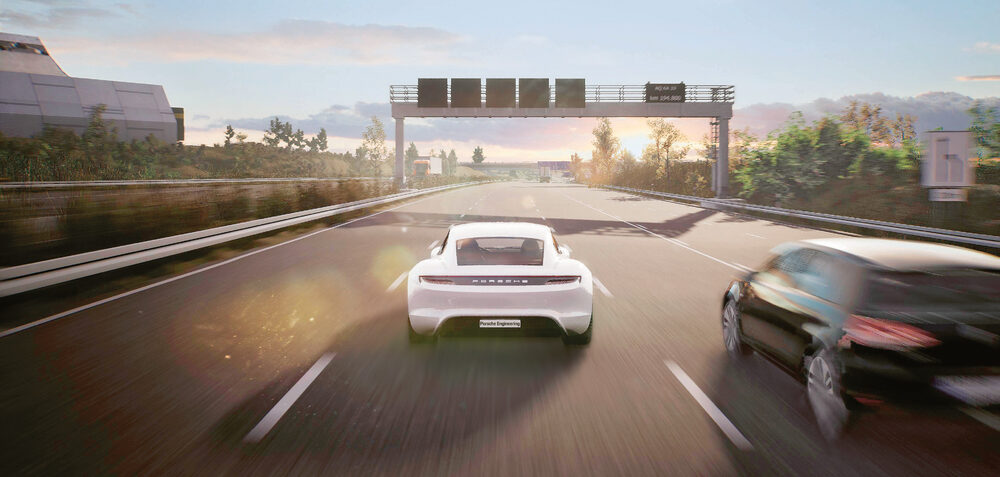Porsche Engineering, the technology service provider and wholly owned subsidiary of Porsche, is using game engines (the core software used for graphics rendering and physics models) from the gaming industry to develop its intelligent and connected vehicles. Among other uses, Porsche says it uses these software packages for the virtual development and testing of highly automated driving functions, and claims this helps shorten development times and saves costs.
“We use a wide variety of technologies to develop and test the intelligent and connected vehicle of tomorrow,” said Dirk Lappe, CTO of Porsche Engineering. “Game engines have a crucial role to play here, alongside artificial intelligence. They train driver assistance systems with synthetic sensor data. So every scenario and eventuality can be played out in detail.
“Drives simulated with the help of game engines have the advantage that they can be repeated as often as required and can be controlled down to the smallest detail. In addition to real and virtual tests, Porsche Engineering implements mixed forms: a real vehicle can react to virtual objects, for example.”
The use of game engines extends beyond the training of driver assistance systems: in vehicle design, they are used to reduce the number of real prototypes and thus save time and costs. For this purpose, Porsche Engineering uses a visual engineering tool developed in-house, which can be used with CAD data and augmented reality (AR) or virtual reality (VR) goggles to clarify questions about the optimal arrangement of components, for example, quickly and cost-effectively.
With the new development methods, new types of employees are also making their way into the automotive industry. “Software developers with a gaming background are shaping the future of mobility, as are mechanical engineers and AI experts,” Lappe continued. “The intelligent and connected vehicle is created by combining world-class automotive expertise with software expertise. We’re car geeks who love to program at the same time.”


